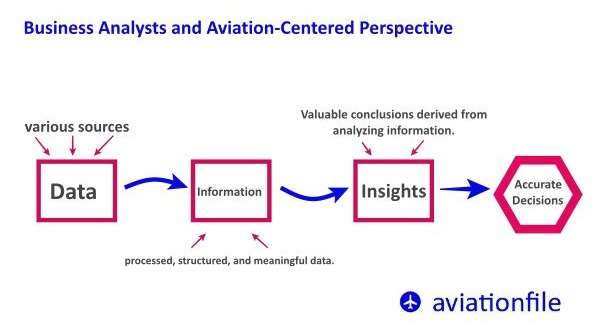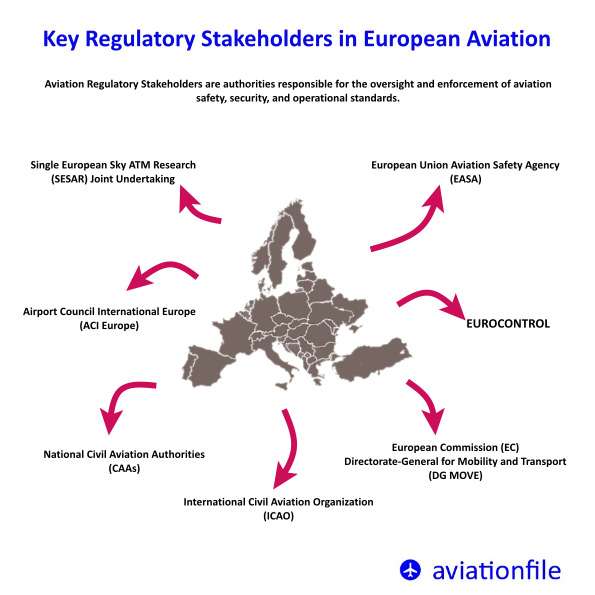How Do Business Analysts Create Value in Modern Society? An Aviation-Centered Perspective
In today’s fast-paced and interconnected world, the aviation industry plays a critical role in driving economic growth, fostering global connectivity, and enabling cultural exchange. Behind the scenes of this complex and high-stakes industry, business analysts (BAs) are indispensable. Their expertise and strategic insights create immense value, not only for aviation companies but for society at large. In this article, we explore how business analysts contribute to modern society, with a focus on their impact on the aviation sector.
Understanding the Role of Business Analysts in Aviation
Business analysts act as bridges between business goals and technological solutions. They analyze data, identify opportunities for improvement, and craft strategies that optimize processes. In the aviation industry, their role is even more critical due to its intricate operations, regulatory environment, and constant need for innovation.
From streamlining airline operations to enhancing passenger experiences, business analysts ensure that aviation companies remain competitive, compliant, and customer-centric. Their efforts often ripple beyond organizational success, influencing economic development, environmental sustainability, and community well-being.
Leveraging Data-Centered Decision Making
In the digital age, aviation thrives on data, and business analysts are pivotal in transforming raw information into actionable insights. By utilizing advanced analytics, predictive modeling, and machine learning, they help airlines forecast demand, optimize pricing strategies, and improve fleet management. For example, analyzing passenger trends enables better route planning, reducing wasted resources and enhancing profitability. This data-driven approach not only streamlines operations but also ensures more accurate, customer-focused decision-making, which resonates with modern travelers and aligns with industry trends toward precision and personalization.

Key Contributions of Business Analysts in Aviation
1. Enhancing Operational Efficiency
Efficient operations are the backbone of aviation. Delays, mismanagement, and inefficiencies can cost airlines millions and inconvenience passengers. Business analysts leverage data analytics and process modeling to identify bottlenecks and propose solutions.
For example, a BA might study flight scheduling systems to reduce turnaround times or analyze fuel consumption patterns to recommend cost-saving measures. These improvements not only save money for airlines but also enhance on-time performance, benefiting society by reducing travel disruptions.
2. Driving Customer-Centric Innovation
Modern travelers expect seamless, personalized experiences, from booking to landing. Business analysts gather insights from customer feedback, market trends, and competitor strategies to design customer-focused solutions. Whether it’s improving mobile apps for ticket booking or introducing AI-driven chatbots for real-time customer support, BAs help create a more enjoyable travel experience.
Satisfied customers translate to higher passenger loyalty, increased tourism, and stronger economic ties between regions, demonstrating the broader societal value of their work.
3. Strengthening Regulatory Compliance
Aviation is heavily regulated to ensure safety, security, and environmental sustainability. Business analysts help organizations navigate this complex regulatory landscape by ensuring compliance with standards set by bodies like the FAA, ICAO, or EASA.
For instance, BAs might work on implementing new emissions reporting systems to align with sustainability goals. By ensuring compliance, they not only protect airlines from penalties but also contribute to global efforts to mitigate climate change.

4. Promoting Sustainable Practices
Sustainability is a growing concern in aviation, and business analysts are at the forefront of this transformation. They evaluate technologies and practices to reduce carbon footprints, optimize fuel efficiency, and adopt greener alternatives.
For example, a BA might analyze the feasibility of transitioning to sustainable aviation fuels (SAFs) or electric aircraft. Their recommendations help airlines reduce their environmental impact, aligning with societal demands for a cleaner future.
5. Fostering Economic Growth
Airlines are key drivers of economic activity, connecting businesses, facilitating trade, and supporting tourism. Business analysts ensure the financial health of aviation companies by identifying new revenue streams, optimizing cost structures, and enabling data-driven decision-making.
By maintaining profitability, aviation companies can continue to expand routes, lower ticket prices, and create jobs, directly contributing to economic development.
How Business Analysts Enhance Aviation Efficiency: A Real-World Example
Business analysts play a pivotal role in modern aviation by driving operational efficiency and enhancing customer experiences. A compelling example is an Australian airline that partnered with Business Analysis Excellence to optimize its membership program. Faced with an undocumented, highly integrated system, business analysts conducted a detailed analysis to identify and address inefficiencies. By functionally decomposing the system, they implemented seamless enhancements, boosting customer satisfaction and loyalty without disrupting existing operations. This case underscores how business analysts add value by streamlining processes, fostering innovation, and delivering measurable results in the competitive aviation industry.
Broader Impact on Society
The value created by business analysts in aviation extends far beyond the sector itself. Their work supports societal needs in several ways:
- Global Connectivity: By optimizing airline networks, BAs make travel more accessible, fostering cultural exchange and international cooperation.
- Crisis Management: During disruptions like the COVID-19 pandemic, BAs played a crucial role in helping airlines pivot operations, ensuring the continuity of essential services.
- Technology Advancement: Their push for innovation accelerates the adoption of cutting-edge technologies, such as AI, IoT, and predictive analytics, benefiting industries beyond aviation.
Conclusion
Business analysts are unsung heroes in modern society, creating value by enabling efficiency, innovation, and sustainability in industries like aviation. Their ability to bridge business objectives with actionable insights ensures that aviation companies not only thrive but also contribute positively to society.
In an era where connectivity and sustainability are paramount, the role of business analysts in aviation has never been more vital. By enhancing operations, delighting customers, and driving economic growth, they shape a future where the skies are not just for flying, but for progress and prosperity.


